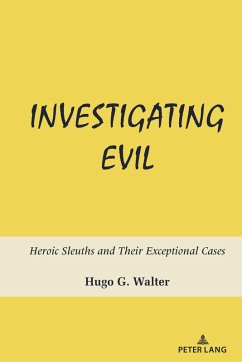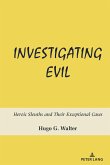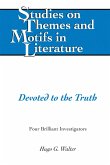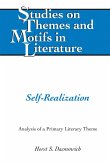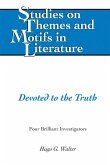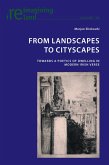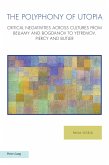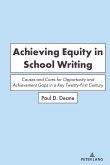This book is a collection of excellent essays about heroic, intelligent, perceptive, and resourceful private citizens with exceptional investigative capacities and their important contributions to noteworthy criminal cases which are discussed in literary masterpieces by Agatha Christie and Dorothy Bowers. These citizen sleuths are motivated by a strong moral courage, by a commitment to examine the evidence in any case meticulously and thoroughly, by a spirit of civic devotion, by a dedication to searching carefully and honestly for the truth, and by a strong belief in ethical values, fairness, and justice so that the security and wellbeing of a community can be supported and preserved. These citizen sleuths, who often collaborate effectively with law enforcement officials in investigations, all passionately share Miss Marple's belief, which she expresses in Chapter Twenty-eight of Agatha Christie's A Pocket Full of Rye, that it is vital "that wickedness shouldn't triumph" in everyday life and in society. Each of the four chapters focuses on a different type of malevolent character which these citizen sleuths notice and investigate: murderous family members, treacherous friends, devilish figures, and corrupt officials who abuse and exploit their positions of authority. The conclusion examines several fascinating cold case scenarios in the works of Agatha Christie.
"Something between Edgar Allan Poe's detective prodigy of the preternatural and Jane Austen's 'neighbourhood of voluntary spies,' Christie's and Bowers's amateur sleuths have a nose for foul play and an unflinching sense of civic duty and moral courage. A welcome intervention in a critically neglected genre, Hugo Walter's timely study offers rare insight into the history, influence, and mechanics of the modern 'whodunit?'. While focused on Christie and Bowers unassuming-but-intrepid protagonists, this engaging work offers a much broader sociology of citizen detectives and the allure of their uncanny capacity to inhabit diabolical genius and their moral obligation to even the score."
-Gregory S. Jackson, Rutgers University
Hinweis: Dieser Artikel kann nur an eine deutsche Lieferadresse ausgeliefert werden.
"Something between Edgar Allan Poe's detective prodigy of the preternatural and Jane Austen's 'neighbourhood of voluntary spies,' Christie's and Bowers's amateur sleuths have a nose for foul play and an unflinching sense of civic duty and moral courage. A welcome intervention in a critically neglected genre, Hugo Walter's timely study offers rare insight into the history, influence, and mechanics of the modern 'whodunit?'. While focused on Christie and Bowers unassuming-but-intrepid protagonists, this engaging work offers a much broader sociology of citizen detectives and the allure of their uncanny capacity to inhabit diabolical genius and their moral obligation to even the score."
-Gregory S. Jackson, Rutgers University
Dieser Download kann aus rechtlichen Gründen nur mit Rechnungsadresse in A, D ausgeliefert werden.
Hinweis: Dieser Artikel kann nur an eine deutsche Lieferadresse ausgeliefert werden.
"Something between Edgar Allan Poe's detective prodigy of the preternatural and Jane Austen's 'neighborhood of voluntary spies,' Christie's and Bowers's amateur sleuths have a nose for foul play and an unflinching sense of civic duty and moral courage. A welcome intervention in a critically neglected genre, Hugo Walter's timely study offers rare insight into the history, influence, and mechanics of the modern 'whodunit?'. While focused on Christie and Bowers unassuming-but-intrepid protagonists, this engaging work offers a much broader sociology of citizen detectives and the allure of their uncanny capacity to inhabit diabolical genius and their moral obligation to even the score." Gregory S. Jackson, Rutgers University

